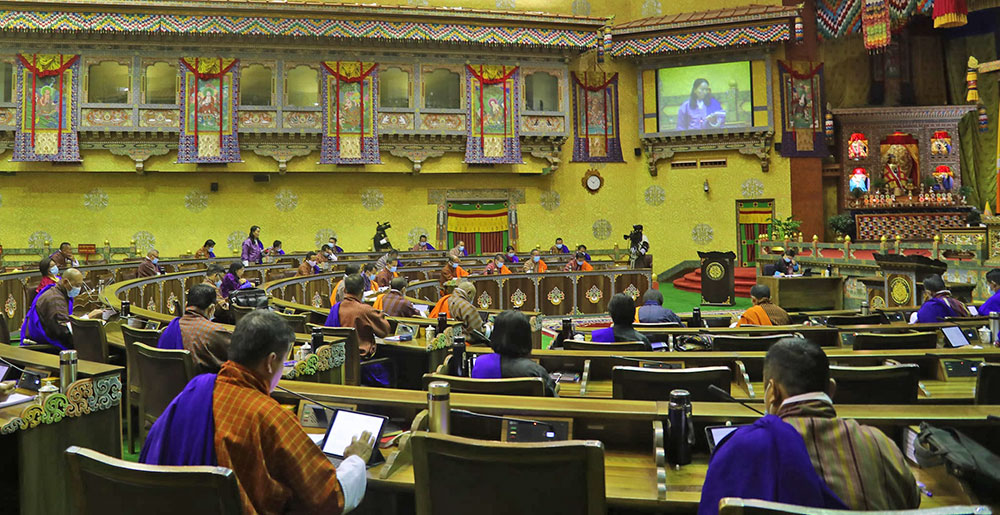Dechen Dolkar
Mismatches in details have led to delays in claiming excess customs duty refunds for importers, according to Bartsham-Shongphu MP Passang Dorji (PhD).
He said that while the Customs Duty Act was passed in Parliament and implemented in July of this year, some shopkeepers are still having issues with claiming refunds. The issue was raised during the deliberations on the Customs Duty (Amendment) Bill 2021 at the National Assembly yesterday.
Customs duty on third-country imports was reduced to 10 percent, excluding alcohol, tobacco products, and vehicles.
“It is important to include and look into these issues while discussing the bill in Parliament,” Passang Dorji said.
He said the verifying team faces issues like values and measurements in the invoices not matching with what was declared on the declaration forms.
He also said that the verifying customs official does not have information on the minimum value set by the POE, thereby making it difficult to verify. The invoice units are in cartons, dozens, and bags, whereas units on the declaration form are NBM, litres, and KGM.
Most of the items on the invoice are declared under one BTC code, as there are no separate BTC codes for each product. For example, he said that any kind of noodle is classified under one single BTC code, which is 1902.30.00.
“With the difference in units of measurement and one code for multiple items, it is difficult to verify the stock balance for which refund will be admissible,” MP said.
Finance Minister Namgay Tshering said that there is no change to the BTC code. The tax is imposed according to the numbers and not imposed by weight.
Lyonpo said that reducing the customs duty has not benefited the intended end consumers, because a few shopkeepers have put the refund in their pockets.
Lyonpo said that around seven to eight shopkeepers have requested that the government refund the excess CD, and the government has agreed to refund it if they have imported goods after the implementation of the new CD.
However, he said that the government has requested that shopkeepers show the invoices on the quantities they imported and sold. The reason, he said, is to check whether it has benefited the end customers.
Similarly, the finance minister also proposed a new section to the Customs Duty (Amendment) Bill that would authorise the Ministry of Finance to change the Harmonised System (HS) code every five years.
The HS code is changed every five years by the World Customs Organization, of which Bhutan is a member, and the next change is in January 2022.
The House passed all the recommendations made by the Legislative Committee through a majority show of hands. The Bill will be put to vote today.
Edited by Jigme Wangchuk


